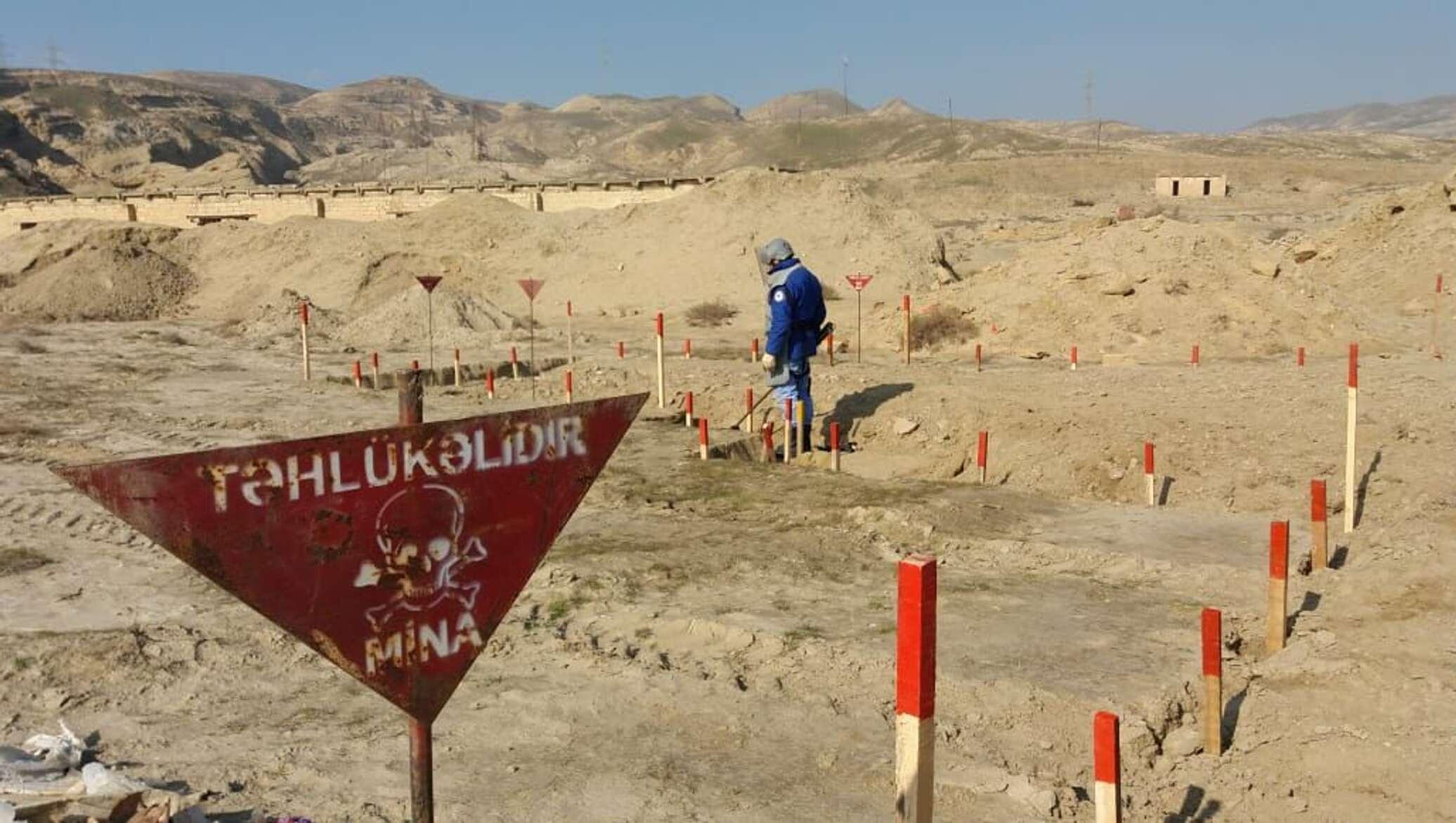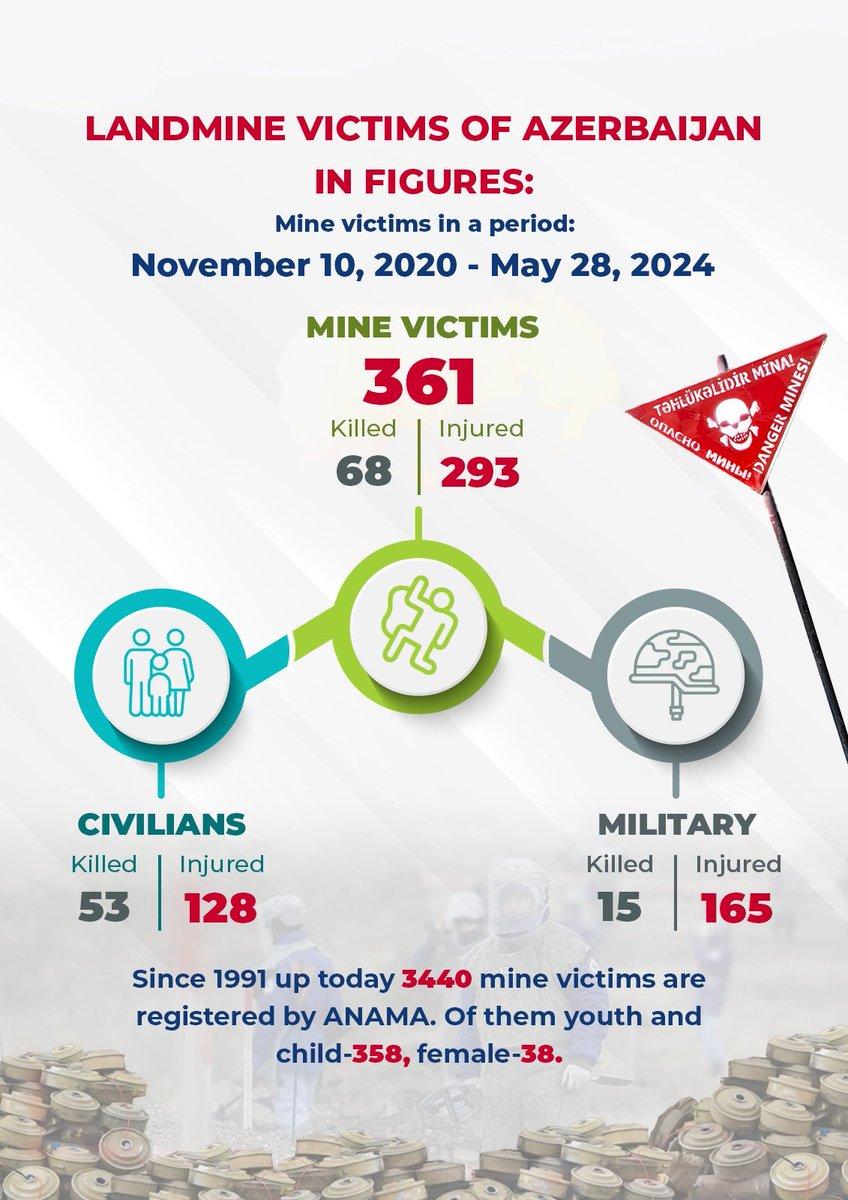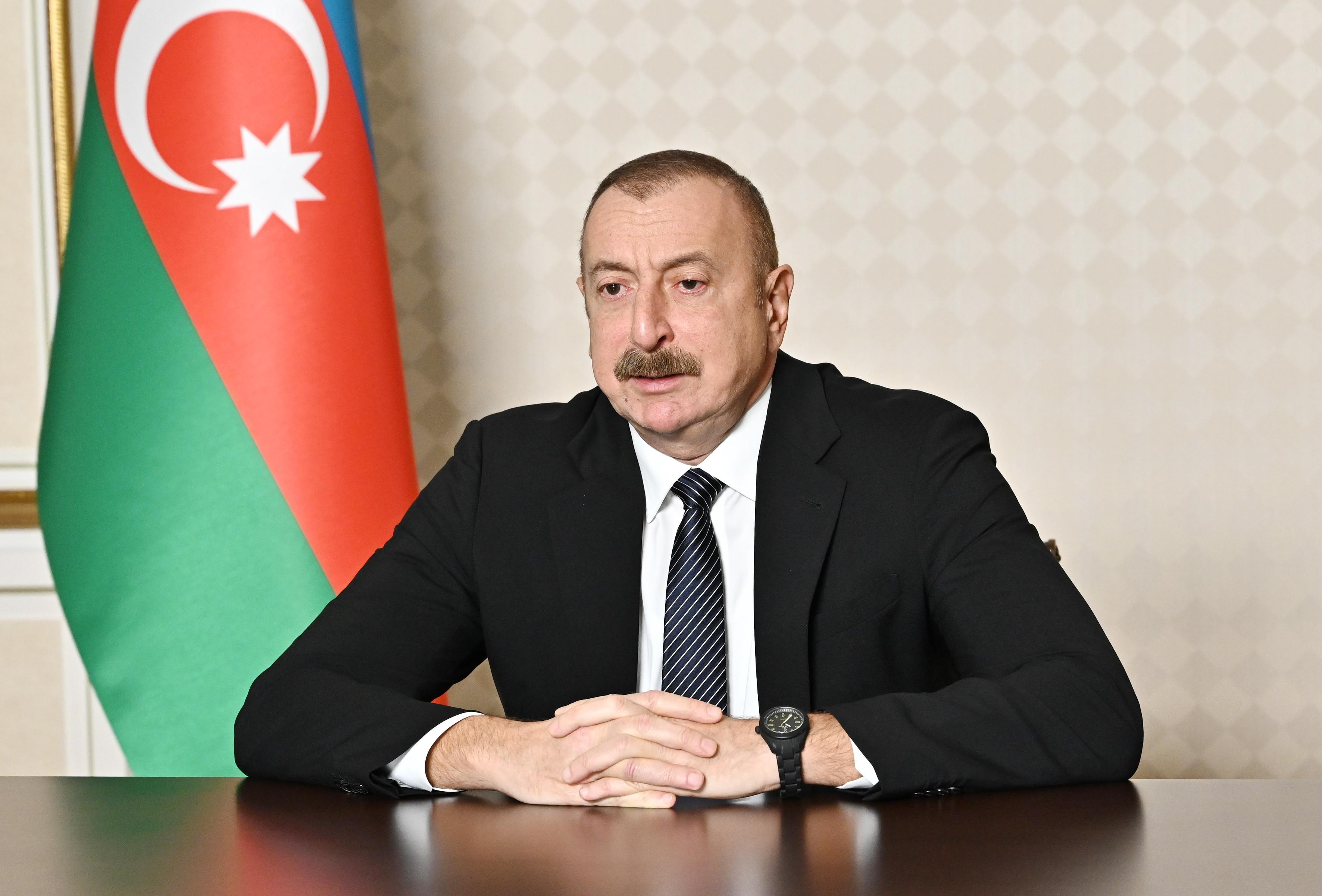Azerbaijan as emerging global centre for demining More on the landmine problem
Recently, the Third International Conference on Mine Action, themed "Mitigating Environmental Impact of Landmines: Resource Mobilization for Safe and Green Future," commenced in the Zangilan region. The conference drew international attention and highlighted Azerbaijan's determination to combat the mine threat.
As is well known, an area of more than 10,000 square kilometres in the territories liberated from occupation in Azerbaijan is currently considered contaminated to varying degrees by mines and unexploded ordnance. To ensure the revival of the Karabakh region and the safe return of its indigenous inhabitants, international support for efforts to eliminate the consequences of the mine problem facing Azerbaijan must be strengthened. For reference, since 1991, more than 3,429 of the country's citizens, including 358 children and 38 women, have been affected by mines. This is truly an alarming figure.
Significance of conference
At the conference, an important agreement was signed between the Azerbaijan National Agency for Mine Action (ANAMA) and the United Nations Development Programme (UNDP). This document lays the foundation for the establishment of a "Center of Excellence" for mine action training in Azerbaijan. The centre will become a vital platform for exchanging demining experiences and technologies with other countries facing similar problems.

President Ilham Aliyev, in his address to the conference participants, emphasized that one of the main reasons for the high number of mine victims is Armenia's refusal to provide accurate maps of minefields left on Azerbaijani territory. "The responsibility for that rests with Armenia," President Aliyev stated. He also noted that from 2020 to 2023, new mined areas extending up to 500 km were created in Azerbaijan.
“Challenges we face on demining also hamper our development and recovery efforts, creating serious obstacles for the return of 800,000 formerly displaced persons,” the head of state said in his address.
Impact of landmines
Mines and unexploded ordnance are among the most acute problems threatening human safety. They not only pose a danger to human lives but also seriously impede socio-economic development, environmental protection, and cultural heritage preservation. Mine explosions cause significant environmental damage, creating plastic waste, negatively affecting soil structure, and causing harmful chemical reactions.
President Aliyev noted: "Mines that remain buried in the ground for a long time lead to harmful chemical reactions. Land left unused due to mines undergoes natural erosion and degradation. In this context, the organization of today's conference ahead of the 29th session of the Conference of the Parties to the UN Framework Convention on Climate Change - COP29, which Azerbaijan will host, is of particular importance."
Azerbaijan's demining efforts
Today, preliminary estimates suggest that 12 per cent of the country's territory is contaminated with 1.5 million mines and an unknown amount of unexploded ordnance.
Since the end of the war in 2020 to the present day, 361 Azerbaijani citizens have fallen victim to mines, 68 of whom have died and 293 have suffered serious injuries.

Azerbaijan is making significant efforts to clear its territories of mines. "Currently, the main structure carrying out humanitarian demining activities in our country is the Azerbaijan National Agency for Mine Action - ANAMA," noted President Aliyev. To date, about 140,000 hectares of territory have been cleared, and 119,946 mines and unexploded ordnance have been detected and neutralized.
Azerbaijan is using the most modern technologies and actively working to improve the efficiency of demining. An important role in this is played by female demining groups, which started operating last year.
International support
Although Azerbaijan carries out demining almost entirely with its own resources, adequate political and practical support from the international community is crucial.
Azerbaijan has launched numerous initiatives to draw international attention to this problem.

“While addressing its mine problem, Azerbaijan has simultaneously launched multiple initiatives to rivet the international community’s attention to this matter. As you may know, last year our country has officially declared humanitarian demining as the 18th National Sustainable Development Goal, and we are working to ensure the recognition of this issue as the UN’s Global 18th SDG,” President Aliyev stated.
Impressions of participants
The conference guests also had the opportunity to visit new facilities in Zangilan, including a recently built mosque and hotel, demonstrating Azerbaijan's commitment to restoring and developing its territories. These facilities symbolize the region's revival after many years of conflict and mined lands.
Conclusion
Azerbaijan is determined to combat the mine threat, which endangers not only its citizens but also the environment. The international conference in Zangilan and the signed document with the UNDP highlight the importance of global cooperation in this field. Azerbaijan continues to share its experience and technologies with the global community, striving to create a safe and green future for all.








